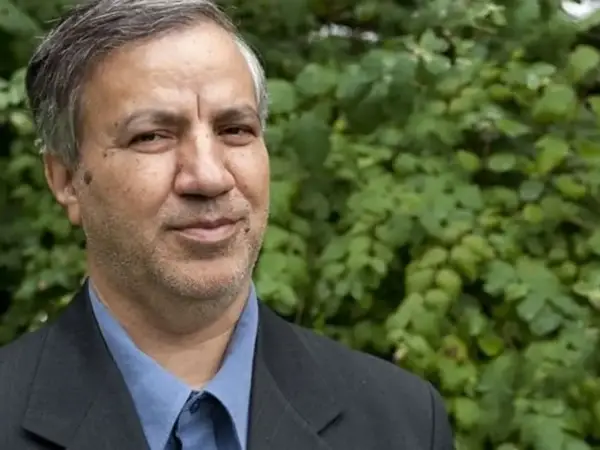A rights organization has filed a complaint in Britain against a former Iranian official, now living in the UK, for having defended Salman Rushdie’s execution.
Justice for Iran, a London-based non-governmental human rights organization, filed its complaint against Iranian politician and author Ataollah Mohajerani for incitement to terrorism in a 1989 book, Critique of the Satanic Verses Conspiracy, and for defending a death fatwa for blasphemy against Rushdie by Iran’s late leader Ayatollah Ruhollah Khomeini.
“Almost all Muslim schools of jurisprudence share the view that whoever insults the prophet deserves to be killed. His repentance cannot be accepted,” Mohajerani, who was also a cleric in Iran, wrote in his book in which he called the Indian born British writer an “apostate”.
The complaint was filed with the counterterrorism unit of UK police on August 16 against Mohajerani, a British citizen who resides in London, Shadi Sadr, human rights lawyer and one of the Co-founders of Justice for Iran told Iran international Thursday [August 25].
British officials have not yet commented about the complaint filed against Mohajerani.
Some Iranian public figures have alleged that western governments’ “forbearance of the Islamic Republic’s terrorist activities and hatemongering” paved the way for the recent knife attack on Rushdie in the United States while others have accused Mohajerani of defending Khomeini’s fatwa and being an apologist for the Islamic Republic.
“How is it possible that the British government allows a former official of the Islamic Republic of Iran to live in the UK and call for the murder of a British citizen. Mohajerani still defending the fatwa against Salman Rushdie,” Masih Alinejad US-based activist Masih tweeted August 15.
In a series of tweets after Rushdie's stabbing, Mohajerani, a former vice-president and minister of culture and Islamic guidance, implicitly defended writing the book in praise and justification of Khomeini’s fatwa, describing the royalties from the book’s sales as “legitimate and sweet”. Mr. Mohajerani has refused talking to Iran International and other foreign based Persian language media.
Mohajerani later tweeted to deny that he approves of the attack on Rushdi and called the attempt on his life a ‘tragic incident’ but also said he hopes that the British author will cease “insulting prophets and religions during the rest of his life”.
He has responded to the possibility of being investigated by the British authorities and a trial by saying that this will provide him with a “golden opportunity” that he is ready to exploit.
Sadr told Iran International that her organization consulted a group of expert British lawyers about the case before filing its complaint. “The British lawyers said Mohajerani’s writings are evidence of “incitement of terrorism” and “sharing terrorist content”, she said.
Sadr added that the lawyers who were provided with the English translation of Mohajerani’s writings and recent tweets on the attempt on Rushdie’s life in New York in August filed the complaint with the British authorities on behalf of Justice for Iran.
Iran's hardliner media doubled down on praise for the attack on Rushdie as many condemned the stabbing by a man allegedly sympathetic to Shiite extremism.
Khomeini's death fatwa against Rushdie resulted in several failed assassination attempts against him as well as his publishers and translators. Satanic Verses’ Japanese translator, Hitoshi Igarashi, was killed, its Italian translator, Ettore Capriolo, was seriously injured in a stabbing attack, itsNorwegian publisher,William Nygaard, was shot, and an arson attack by a fundamentalist mob against its Turkish translator, Aziz Nesin, at a hotel in Sivas, Turkey, in 1993 led to the death of 37 people. Nesin narrowly escaped.
